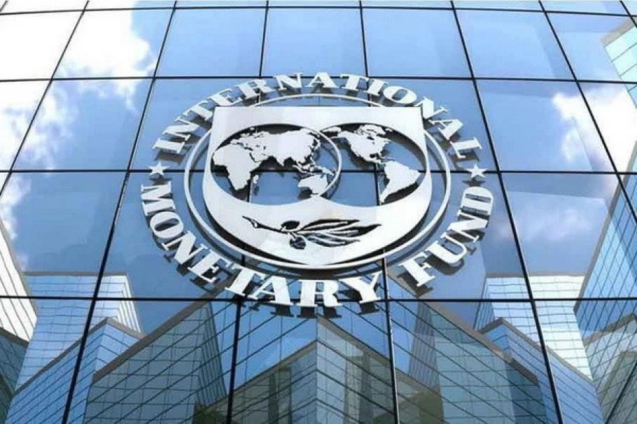
Audio By Carbonatix
The International Monetary Fund (IMF) has maintained that the restructuring of Ghana debts will be dependent on the outcome of the World Bank/IMF Debt Sustainability Analysis (DSA) Report.
The IMF argues that the report will influence how Ghana’s debt restructuring should be carried out and which areas will be affected.
The Fund maintains that “the DSA report will also help identify the areas that the restructuring will affect. Whether it will be domestic debt or the foreign components of the country’s debt”.
Speaking at a News Conference in Washington DC, Director of Communications with the IMF, Gerry Rice noted that the Fund will review data from Ghana.
Mr. Rice noted that “when a country requests financing from the IMF, we assess whether the country’s policies are consistent with debt sustainability as one of our requirements”.
“We still need to conduct a thorough update of the debt situation in Ghana through our Debt Sustainability Analysis,” he added.
“The last, I don’t know if it’s useful, I have here the last DSA, Debt Sustainability Analysis. We published this as part of the 2021 Article IV Staff Report with Ghana. It said public debt was a sustainable conditional on a rigorous and credible implementation of the authority’s medium term consolidation plan to put debt on a declining trajectory and ensure continued market access,” Mr. Rice stressed.
What is the World Bank/IMF Debt Sustainability Report?
The World Bank Group and the IMF work with low-income countries to produce regular Debt Sustainability Analyses, which are structured examinations of developing country debt based on the Debt Sustainability Framework.
The two institutions use this framework to guide the borrowing decisions of low-income countries in a way that balances their financing needs with their ability to repay—both in the present and in the future.
The area of work has three goals which ensure that countries that have received debt relief are on a sustainable development track as well as allow creditors to better anticipate future risks and tailor their financing terms accordingly.
The goal also helps client countries to balance their needs for funds with the ability to repay their debts.
IMF and Ghana’s Debt Situation
Ghana Debt Stock is said to have reached 393 billion Ghana cedi by June 2022.
The IMF in its last debt sustainability report classified Ghana as High Risk of Debt Distress.
Ghana’s programme will be heavily focused on how to contain the country’s debt situation going forward.
Latest Stories
-
Africa’s top editors converge in Nairobi to tackle media’s toughest challenges
37 minutes -
Specialised courts, afternoon sittings to tackle case delays- Judicial Secretary
40 minutes -
Specialised high court division to be staffed with trained Judges from court of appeal — Judicial Secretary
1 hour -
Special courts will deliver faster, fairer justice — Judicial Secretary
2 hours -
A decade of dance and a bold 10K dream as Vivies Academy marks 10 years
2 hours -
GCB’s Linus Kumi: Partnership with Ghana Sports Fund focused on building enduring systems
3 hours -
Sports is preventive healthcare and a wealth engine for Ghana – Dr David Kofi Wuaku
3 hours -
Ghana Sports Fund Deputy Administrator applauds GCB’s practical training for staff
3 hours -
Ghana Sports Fund strengthens institutional framework with GCB Bank strategic partnership
3 hours -
UBIDS to Complete Abandoned Projects Following GETFund Financial Clearance – Vice Chancellor
3 hours -
Nii Moi Thompson questions Anokye Frimpong’s ‘distorted history’ narratives
4 hours -
Anthony O’Neal set to receive Ghanaian citizenship, prepares to launch ‘Class on the Bus’ Initiative
4 hours -
South Tongu MP inspects GH₵500,000 surgical equipment, supports District Court with logistics
5 hours -
Kpasec 2003 Year Group hosts garden party to rekindle bonds and inspire legacy giving
7 hours -
Financing barriers slowing microgrid expansion in Ghana -Energy Minister
7 hours

